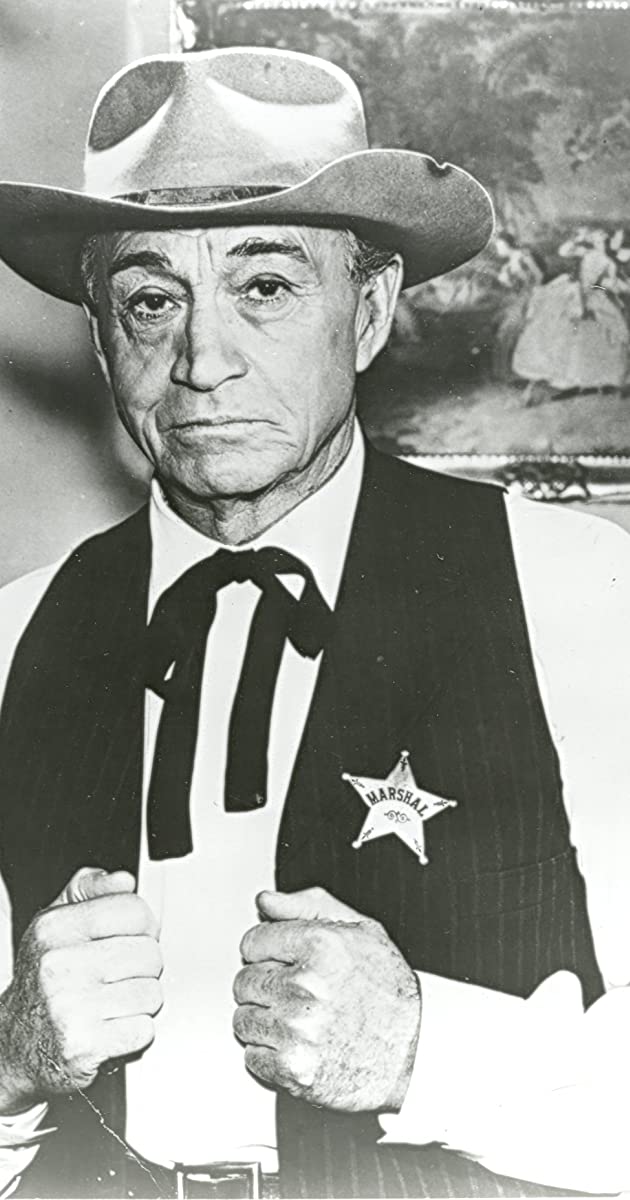
Paul Fix, the well-known movie and TV character actor who played “Marshal Micah Torrance” on the TV series The Rifleman (1958), was born Peter Paul Fix on March 13, 1901 in Dobbs Ferry, New York to brew-master Wilhelm Fix and his wife, the former Louise C. Walz. His mother and father were German immigrants who had left their Black Forest home and arrived in New York City in the 1870s. (The name “Fix” is of Latin/Germanic origin, and is derived from St. Vitus and means “animated” or “vital”).
Besides Peter Paul, the Fix family consisted of two girls and three boys, the youngest of whom was six years older than the future actor. Peter Paul’s childhood was a happy one. He and his family lived on the 200-acre property on which the Manilla Anchor Brewery, where his father was brew-master, was situated. Such was the importance of the senior Fix to the brewery that when he died at the age of 62 on the eve of America’s entry into the First World War (two years after his 54-year old wife had died), the brewery closed.
The orphaned Peter Paul, who kept to himself a lot and had a vivid imagination, was sent to live with his married sisters, first one who lived nearby in Yonkers, and then to another in Zanesville, Ohio. The just-turned-17-year-old Peter Paul Fix joined the U.S. Navy on March 12, 1918, and spent his state-side service time during World War I in Newport, Rhode Island and Charleston, South Carolina. He first tread the boards as an actor while a sailor stationed in Newport, when the baby-faced salt (who looked much younger than his age) was one of six gobs chosen to play female roles in the Navy Relief Show “HMS Pinafore”. The Navy staging of the Gilbert and Sullivan operetta was a big hit and chalked up a run of several weeks in Providence and Boston.
Fix was assigned as an able-bodied seaman to the troopship U.S.S. Mount Vernon, which was torpedoed by a German U-boat off the coast of France but did not sink as it was run aground. The rest of Fix’s naval career was less exciting, and he was demobilized on September 5, 1919. After his discharge, Fix went back to his girlfriend Frances (Taddy) Harvey, whom he had left behind in Zanesville. He and Taddy were married in 1922 and they moved to California as Fix had always wanted to live in a warm climate.
Fix and his bride settled in Hollywood, not so much because he had set ideas about becoming an actor but because he didn’t know what he wanted to do with the rest of his life. He liked writing and acting in local plays, and soon became friends with the fellow tyro actor Clark Gable, who was his own age. Fix and Gable were discovered by the stage actress Pauline Frederick, who hired them to be members of her touring troupe that traveled by train the length of the West Coast putting on plays. In all, Fix – who had informally renamed himself Paul Peter – appeared in 20 plays with Gable.
Paul Fix had one of his earliest acting roles on celluloid in the mid-1920s, appearing in a silent Western starring William S. Hart. The Western genre eventually would become the one he was most identified with. He played uncredited bit parts and small roles in silents before getting his first credited role in an early talkie (which was part-silent and part-talking), The First Kiss (1928), which starred future Hollywood superstar Gary Cooper and the dame that drove King Kong ape, Fay Wray. In all, Fix appeared in 300-400 films. The Western programmers of the silent and early talkie days could be shot in less than a week.
In 1925, Taddy gave birth to their daughter Marilyn Carey, who eventually would marry Harry Carey Jr., the son of one of the first great Western superstars. They would have three more children and become part of the extended family gathered around the director John Ford. In his career, Paul Fix would appear with another Western legend, John Wayne, in 26 films, starting in 1931 with Three Girls Lost (1931). Urged on by Loretta Young, Fix became an acting coach for the young actor, and Wayne later paid him back when he became a star by having Fix appear in his movies. (The Duke also was a part of the close-knit group that collected around John Ford). With the Duke’s patronage, the kinds of roles that Fix played changed. He had been typed as villains in the 1930s but, in the 40s, he began assaying a better class of character.
Paul Fix was also a screenwriter, and is credited as the writer on three films: Tall in the Saddle (1944), Ring of Fear (1954) and The Notorious Mr. Monks (1958). His favorites parts included playing the stricken passenger in the John Wayne picture The High and the Mighty (1954), Elizabeth Taylor’s father in George Stevens’ classic Giant (1956), the grandfather of the eponymous The Bad Seed (1956) and the judge in To Kill a Mockingbird (1962). His last screen appearance was in the Brooke Shields movie Wanda Nevada (1979), but he is most famous for appearing in the recurring role of “Marshal Micah Torrance” in the popular Western TV series The Rifleman (1958). As of 1981, the 80-year old Fix was still getting mail from all over the world from “Rifleman” fans.
Paul Fix died October 14, 1983 of kidney failure. He was survived by his daughter Marilyn Carey and son-in-law Harry “Dobe” Carey, three grandchildren and several great-grandchildren.


